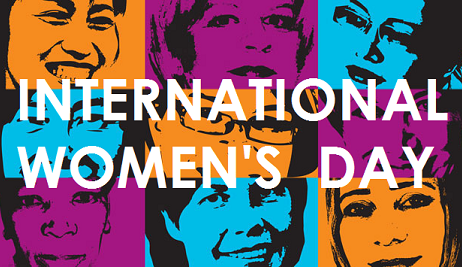A commentary by Cora Metrick-Chen for the Iowa City Press-Citizen
“Iowa City is a microcosm for a lot of the issues happening in the U.S.” — Azzah Nasraddin
Every year, for decades now, the Iowa United Nations Association has held Night of 1,000 Dinners in honor of International Women’s Day. Over these decades, the role that we have played in Iowa City as proponents of international cooperation has shifted. It used to be that our role was to connect Iowans to an international community that seemed so far away and hard to reach. Now, the world has brought the international playing field to our doorstep. International cooperation is our goal not only abroad (“out there”), but also here, here in our state, here in our city, here in our schools.

In International Women’s Day, we see the convergence of every priority the United Nations holds. Our theme this year for Night of 1,000 Dinners is “Women and the Environment.” You can’t talk about women without talking about race, and you can’t talk about the environment without talking about poverty. You can’t talk about women without talking about politics, and you can’t talk about the environment without talking about health. And on all these fronts, we see the need for international collaboration.
Why are we so convinced that we have a duty to facilitate international collaboration on these topics here in Iowa? And why is International Women’s Day key in that undertaking? Because it is exactly what our young people are asking for. We asked women involved in Iowa UNA, all students at the University of Iowa, for their thoughts on International Women’s Day. Here’s what they told us.
They tell us that there are universal themes when it comes to women:
“No matter what country a woman lives in, the country always considers men dominant. If there’s a powerful woman, people think she’s bossy. My marketing group did a survey of both young adults and established professionals, asking them why they think more women are not running for office. They gave answers like, ‘Because women are not supposed to be running for office.’ It’s a problem that hurts women’s confidence!” — Wendi Xie, Iowa UNA volunteer
They show us that it’s essential that Women’s Day and other advocacy is international:
“Usually when women think of women, they think of their moms or their aunts or other close female figures that they look up to. I’m biracial, and I have women from the U.S. and also women from Honduras to look up to. A lot of the time, people only focus on women of one specific race. But this day is not just appreciating one culture or another, or just women, but all different cultures on top of being a woman.” —Sabra Cacho, Human Rights Praxis with Iowa UNA
They show us that people are already searching for tools with which to raise awareness:
“I’m drawn to International Women’s Day because I want awareness of issues like environmental degradation and sexual assault that women deal with every day. Education and awareness are the first steps to solutions. One of the main goals of International Women’s Day for me is spreading information to people who don’t understand these issues yet, who haven’t gotten the word.” — Natalie Himmel, Iowa UNA executive editor intern
They tell us that Iowa City benefits from global exchange:
“Because of globalization, everyone is living in the same world. To make global exchange work, we need to understand each other’s cultures. But people who come to America come to bigger cities like Chicago or New York. They don’t realize that Iowa City is full of good resources. We have a good school, organizations like the Council of International Visitors to Iowa City (CIVIC), and we’re a UNESCO City of Literature. We need to attract people to our good resources.” — Yulin Cheng, Iowa UNA international exchange facilitator intern
They tell us that our legacies also call for further action:
“The University of Iowa was the first university in America to admit men and women on an equal basis. International Women’s Day is a great day to acknowledge how modern the university has been. Since the university is a leader, this day may serve to remind the university that even if women here have the right to education, we can still help other countries to reach this goal.” — Astrid Montuclard, Iowa UNA volunteer
And they tell us they crave the intersectionality that International Women’s Day has the potential to offer:
“I think about International Women’s Day from my experience as a black woman. I see that there are multidimensional facets to oppression. Modern feminism has made me choose between blackhood and womanhood. Which is odd. Because I’m a black woman: I don’t know what it’d be like to be a black man, and I don’t know what it’d be like to be a white woman. International Women’s Day has the potential to celebrate all women: all races, classes, all abilities of women. It’s a day where all women can feel comfortable.” — Azzah Nasraddin, Human Rights Praxis with Iowa UNA
Join the discussion, and help us celebrate women around the world at Night of 1,000 Dinners at 6 p.m. Thursday, March 5, 2015 in Old Brick Church. For more information, visitiowauna.org or contact cora@unaiowa.org
Cora Metrick-Chen is the associate director for the Iowa United Nations Association.